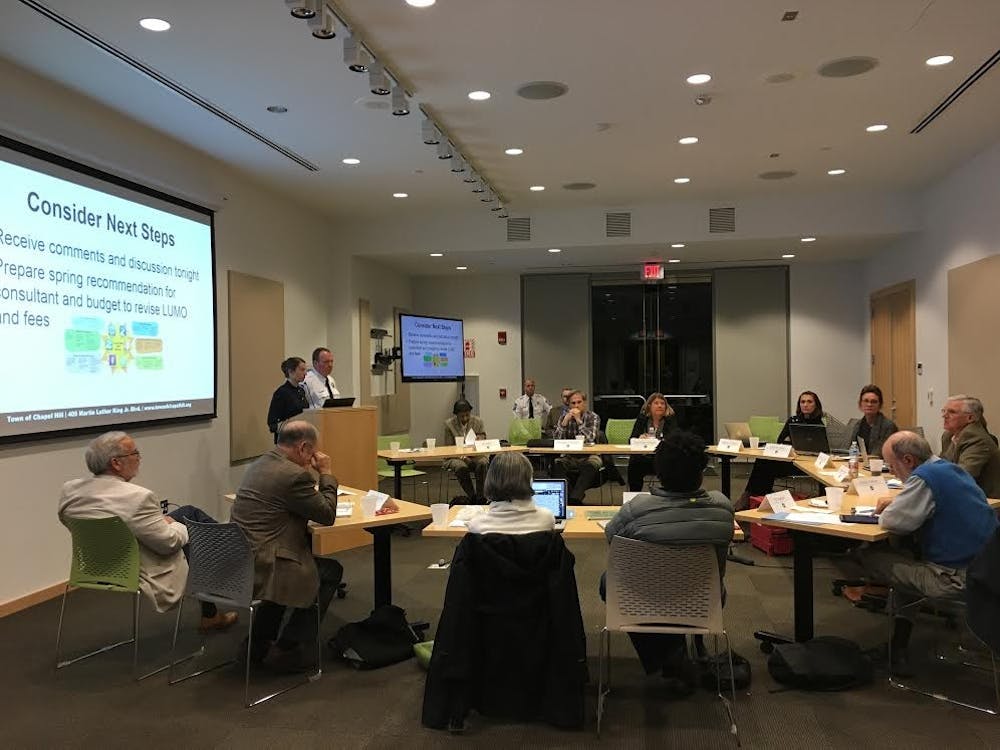From 2005 to 2015, 70 percent of major development projects within Chapel Hill went through the special use permit process.
David Owens, professor in the UNC School of Government, questioned the use of special use permits and discussed resident input in these projects, including their dissatisfaction with traffic conditions and property value.
“With special use permits, it is sometimes frustrating for citizens to make a policy objection because their opinions are highly irrelevant when it comes to special use permits,” Owens said.
Rezonings and development agreements use a legislative process while special use permits go through a quasi-judicial process, which involves much more involvement from the Chapel Hill Town Council.
Council members all expressed concern in making sure that citizens understood the differences between the types of hearings, depending on the type of development review it undergoes.
Council member George Cianciolo agreed that education about these processes was important to remember while making this decision.
“We need to do a better job of educating the citizens on the differences between evidentiary hearings and legislative hearings,” Cianciolo said.
Mary Jane Nirdlinger, executive director of the office of planning and sustainability at Town of Chapel Hill, discussed fees related to building, development and life safety.




